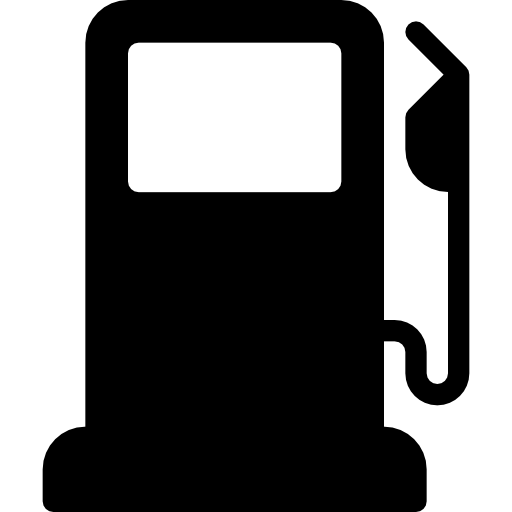Fuel Consumption Converter

About the Fuel Consumption Converter Tool
The Fuel Consumption Converter is an essential and powerful tool designed for anyone looking to convert between different fuel consumption units effortlessly. Whether you are a driver, a mechanic, an engineer, or simply someone interested in fuel efficiency, this tool caters to your needs. By supporting a wide array of globally recognized units, the converter is both versatile and practical for a variety of applications, from everyday commuting calculations to specialized industrial and scientific tasks.
Fuel consumption is a critical metric in various sectors, including transportation, logistics, and environmental sciences. Understanding and accurately converting fuel consumption units can lead to better decision-making, cost savings, and improved environmental impact. This tool simplifies the conversion process, allowing users to focus on what matters most—whether it’s optimizing vehicle performance, calculating fuel budgets, or comparing international fuel consumption standards.
Understanding Popular Fuel Consumption Units
Fuel consumption units vary depending on the region and application. Here’s a breakdown of some of the most common units you can convert using this tool:
- Meter/Liter (m/L): This unit measures the distance a vehicle can travel on one liter of fuel. It’s a straightforward way to express fuel efficiency, particularly in contexts where shorter distances are relevant.
- Kilometer/Liter (km/L): Widely used in many countries, particularly in Asia and Europe, this unit denotes how many kilometers a vehicle can travel per liter of fuel. It’s a standard metric for assessing fuel efficiency in passenger vehicles.
- Mile (US)/Liter (mi/L): Primarily used in the United States, this unit represents the number of miles a vehicle can travel on one liter of fuel. It’s useful for those who are more accustomed to the imperial system but still want to consider fuel efficiency in terms of liters.
- Nautical Mile/Liter (n. mile/L): Commonly used in maritime and aviation industries, this unit is crucial for calculating the fuel efficiency of ships and airplanes, where distances are often measured in nautical miles.
- Miles Per Gallon (MPG): Perhaps one of the most recognized units, especially in the United States and the United Kingdom, MPG indicates how many miles a vehicle can travel per gallon of fuel. It is a vital unit for comparing the fuel efficiency of different vehicles.
- Liters per 100 Kilometers (L/100km): This unit is commonly used in Europe, Canada, and other parts of the world. It measures the amount of fuel consumed per 100 kilometers, offering a reverse perspective on fuel efficiency—lower values indicate better efficiency.
- … and many more.
Benefits of Using the Fuel Consumption Converter Tool
The Fuel Consumption Converter offers numerous benefits, making it an indispensable tool for both individuals and professionals:
- Precise and Reliable Conversions: This tool ensures that your conversions are accurate, taking the guesswork out of converting between different units of measurement.
- User-Friendly Interface: Designed with the user in mind, the interface is intuitive and easy to navigate, ensuring a smooth and efficient experience.
- Responsive Design: The converter is optimized for all devices, meaning you can use it on your desktop, tablet, or smartphone without any loss of functionality or ease of use.
- Comprehensive Unit Coverage: With support for a wide range of units, you can be confident that this tool will meet your specific needs, whether you are working with metric, imperial, or industry-specific units.
- Free to Use: The tool is completely free, allowing you to access its features without any cost, subscriptions, or hidden fees.
How to Use the Fuel Consumption Converter
Using the Fuel Consumption Converter is straightforward and hassle-free. Follow these steps to perform your conversions:
- Select Your Units: Begin by choosing the source and target units from the dropdown menus. The tool supports a broad selection of units, so you’re likely to find exactly what you need.
- Enter the Value: Input the value you wish to convert into the source input box. Whether you’re dealing with large numbers or small decimals, the tool handles all types of entries.
- View the Converted Value: Once you’ve entered your value, the converted amount will automatically appear in the target input box. This instant feedback allows you to quickly and efficiently obtain your desired conversion.
- Check the Conversion Rate: Below the input boxes, the conversion rate will be displayed. This feature provides transparency and helps you understand the relationship between the units you’re converting.
Frequently Asked Questions (FAQs)
To help you get the most out of the Fuel Consumption Converter, here are some frequently asked questions:
- What units are supported? The Fuel Consumption Converter supports a wide range of units, including both metric and US customary units, as well as industry-specific units like those used in aviation and maritime contexts.
- Is this tool free? Yes, the Fuel Consumption Converter is completely free to use. There are no hidden fees, subscriptions, or limitations on how often you can use it.
- Can I use this tool on my mobile device? Absolutely. The tool is fully responsive, meaning it adapts seamlessly to any device, be it a smartphone, tablet, or desktop computer.
- Why is fuel consumption important? Understanding fuel consumption is crucial for managing fuel costs, optimizing vehicle performance, and reducing environmental impact. This tool helps you make informed decisions by providing accurate conversions between different fuel consumption units.
- How can I provide feedback? We value your feedback and suggestions. If you have any ideas for improving the tool or if you encounter any issues, please feel free to reach out to us via our contact page.
Fuel Consumption Units, Symbols, Conversion Rates, and Descriptions
| Unit | Symbol | Conversion Rate (to Base Unit m/L) | Description |
|---|---|---|---|
| Meter/Liter | m/L | 1 | Measures how many meters a vehicle can travel per liter of fuel. |
| Exameter/Liter | Em/L | 1e18 | Measures how many exameters a vehicle can travel per liter of fuel, used in theoretical physics or extreme large-scale calculations. |
| Petameter/Liter | Pm/L | 1e15 | Measures how many petameters a vehicle can travel per liter of fuel, useful in large-scale theoretical calculations. |
| Terameter/Liter | Tm/L | 1e12 | Measures how many terameters a vehicle can travel per liter of fuel, often used in astronomical calculations. |
| Gigameter/Liter | Gm/L | 1e9 | Measures how many gigameters a vehicle can travel per liter of fuel, typically used in large-scale scientific applications. |
| Megameter/Liter | Mm/L | 1e6 | Measures how many megameters a vehicle can travel per liter of fuel, used in large-scale scientific calculations. |
| Kilometer/Liter | km/L | 1e3 | Indicates the distance in kilometers traveled per liter of fuel. |
| Hectometer/Liter | hm/L | 1e2 | Measures how many hectometers a vehicle can travel per liter of fuel, a less commonly used metric unit. |
| Dekameter/Liter | dam/L | 1e1 | Measures how many dekameters a vehicle can travel per liter of fuel, typically used in specific scientific contexts. |
| Centimeter/Liter | cm/L | 1e-2 | Measures how many centimeters a vehicle can travel per liter of fuel, useful for very precise calculations. |
| Mile (US)/Liter | mi/L | 1609.34 | Used mainly in the US to represent miles traveled per liter of fuel. |
| Nautical Mile/Liter | n. mile/L | 1852 | Common in maritime and aviation for fuel efficiency over nautical miles. |
| Nautical Mile/Gallon (US) | n. mile/gal | 0.000264172 | Used in maritime and aviation industries to measure fuel efficiency in terms of nautical miles per gallon. |
| Kilometer/Gallon (US) | km/gal | 3.78541 | Indicates the distance in kilometers traveled per gallon of fuel, useful for comparisons between metric and imperial systems. |
| Meter/Gallon (US) | m/gal | 0.00378541 | Measures how many meters a vehicle can travel per gallon of fuel, useful in specific scientific contexts. |
We encourage you to explore our wide range of free tools at Tool Stack Central, where you can find other useful converters and calculators designed to simplify your tasks.

